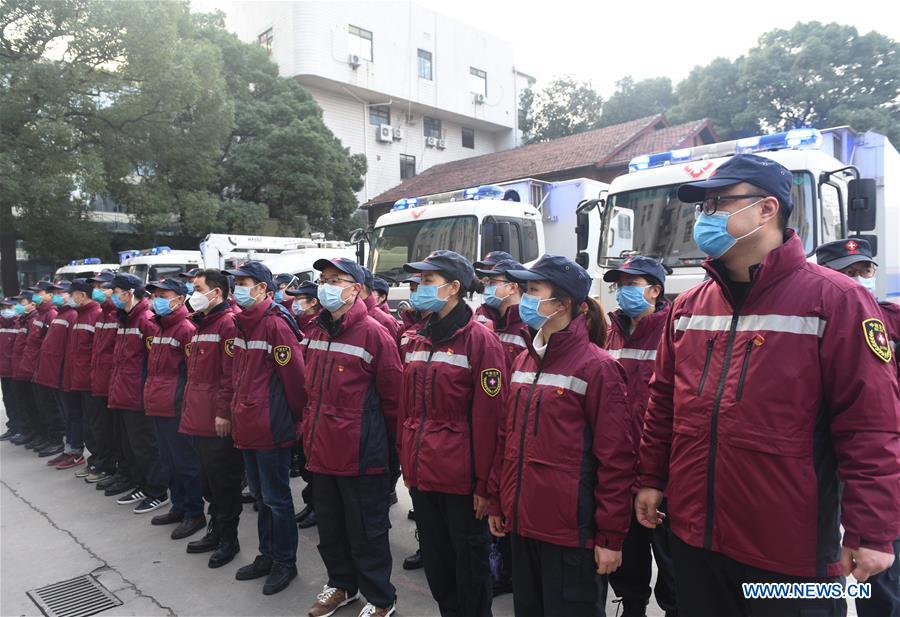Crisis won't disrupt China's renaissance


In the age of artificial intelligence, which is supposed to better anticipate, or of smart cities, which are intended to better protect, the novel coronavirus outbreak is obviously a major public health crisis having global implications.
While they test people, institutions or nations, extraordinary situations, especially when they are unexpected and life-threatening, are also deeply revealing. China and the world are currently having to cope with such a scenario.
Confronted with such a complex and rapidly evolving situation, analysts have to remain prudent. In a paper published in The Lancet, a medical journal, on Jan 31, the authors said:"On the present trajectory, 2019-nCoV could be about to become a global epidemic in the absence of mitigation. Nevertheless, it might still be possible to secure containment of the spread of infection."
When the severe acute respiratory syndrome, or SARS, epidemic affected China 17 years ago, authorities were not only criticized for the lack of transparency around the disease, but also for the lack of appropriate communication with the World Health Organization.
While the exact conditions for the emergence of 2019-nCoV are not yet completely understood, mistakes have certainly been made at the very early stage of the outbreak.
It is widely recognized that the communication around the current crisis and the coordination with the international community are this time much more satisfactory.
On Jan 30, the WHO declared the outbreak a global health emergency. The evolution of the crisis into a pandemic should not be ruled out. The rapid propagation of the virus is a reminder of the intensity of the links between China and the world.
The level of integration between China and the world is also reflected by the prominent role the WHO is playing. The immediate priority is to save lives and control the outbreak. It is a phase in which medical experts should be at center stage. International cooperation among scientists can hasten the win over the epidemic.
The economic loss inflicted by SARS was substantial but relatively limited to the Chinese market. China's weight in today's world of interdependence is much more significant. As a consequence, 2019-nCoV is already having an impact on worldwide trade and supply chains.
With the rapid propagation of the virus, some of the shortcomings of the Chinese healthcare system became evident. In the eyes of public opinion, the dedication of the medical staff and the commitment of the People's Liberation Army are able to offset, to some extent, these deficiencies.
The outbreak has sadly exacerbated Sinophobia, be it in Asia or in some Western countries. When United States Secretary of Commerce Wilbur Ross declared on Fox Business News that the health crisis "will help to accelerate the return of jobs to North America", he demonstrated a shocking insensitivity.
While Twitter and WeChat are platforms through which factual information can be presented to a wider public at an unprecedented speed, social media also circulate rumors and conspiracy theories that are not conducive to management of critical situations.
Diverging narratives based upon at least two different underlying assumptions structure the discourses of those going beyond purely factual reports.
Some may believe that many fragilities almost incapacitating the country can be interpreted as a serious blow to the Chinese government.
Another postulate is arguably much closer to reality. It first takes into account the truly unique resilience of the Chinese people.
Moreover, following its own path, China has been accumulating for decades the resources of a truly great power. Therefore, the country has enough assets to manage this crisis. Through what is indeed a highly painful process, Beijing will keep learning precious lessons and, by doing so, strengthen itself.
In that sense, this outbreak won't disrupt the Chinese renaissance nor fundamentally alter the long-term global changes it involves.
At this moment, if they are unable to remain focused on the long-term trends, governments, businesses and other organizations would be making a serious strategic miscalculation.
The author is a Sinologist and founder of the Europe-China Forum. The views do not necessarily reflect those of China Daily.




































